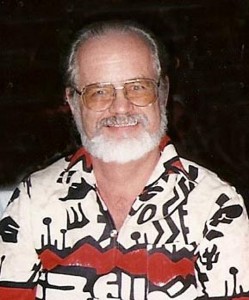Author

Robert Haddock grew up in Detroit, Michigan, and earned both a bachelor of science degree and a doctor of veterinary medicine degree from Michigan State University. He holds a master of public health from the University of Hawai’i, where his thesis research was on the epidemiology of Salmonella infections. Haddock also received post-doctoral training in epidemiology at the Central Institute for Advanced Medical Training, Moscow USSR, and at the High Institute of Public Health, University of Alexandria, Alexandria Egypt.
Prior to earning his MPH, Haddock briefly ran a private veterinary practice in Racine, Wisconsin and worked for the Health Department, City of Detroit and the California Department of Agriculture.
Haddock came to Guam in 1968 to direct a rabies control program following an outbreak of the disease and in 1972 was named territorial epidemiologist, a position he held until 2004 when he retired. Among Dr. Haddock’s collateral duties was serving as chief public health officer for the duration of “Operation New Life” when Guam became an evacuation center for Vietnamese refugees and the island’s population doubled virtually overnight.
In 1998 Haddock started the Guam Cancer Registry and served as the initial director of that agency. Following his retirement, he continued to serve as a consultant to the Guam Department of Public Health and Social Services, as an adjunct professor at the University of Guam, and as a member of the Guam Memorial Hospital Board of Trustees. He authored A History of Health on Guam and has authored or co-authored more than sixty scientific articles. Dr. Haddock is married to Olivia Torres Cruz, MD, the first Micronesian woman to become a physician. They have two children, Ray and Michele, and four grandchildren.
